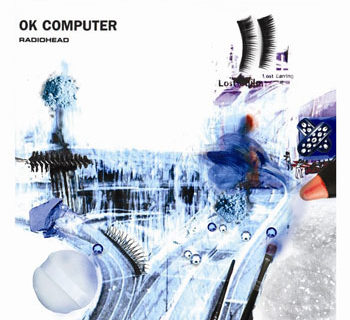Dedicating his third and latest album to a rollercoaster 2016, Benjamin John Power produced World Eater to be angry, violent and frustrating—like the year. This translates into an album that sometimes jumps, sometimes jerks, and sometimes mellows. Get one thing straight though: World Eater is not some niche experiment; it’s a soundtrack to life.
The titles of all seven songs on the album say it a lot: “John Doe’s Carnival of Error,” “Rhesus Negative,” “Please,” “The Rat,” “Silent Treatment,” “Minnesota/Eas Fors/Naked,” and “Hive Mind.”
Each shows Power’s view of humans’ primal nature, that however much progress we make as a species; we have yet to control the dark sides. “Highly evolved and intelligent, we should be able to recognize these genetic hangovers and control them as a means to act positively and move forward as a compassionate species,” says Power in Blanck Mass’ official biography. “Unfortunately, this is not the case.”
Perhaps this lack of control humans have over their instincts is what inspired “John Doe’s Carnival of Error.” The two-minute opener is a mix of simple electronic beats and chopped and screwed voices. Slow-paced, the track sounds perfect for a Hollywood movie’s intro.
Each shows Power’s view of humans’ primal nature, that however much progress we make as a species; we have yet to control the dark sides.
The nine-minute epic “Rhesus Negative” picks up the pace, with a furious electronic beat that leads a medley of other electronic sounds, including distorted bass lines and claps. It follows up nicely after “John Doe’s Carnival of Error” because it gives off this feeling of uneasiness, as if the world is heading 500-mph into madness. Yet, the track still has some of those mellow sounds from the album’s intro song that gives this feeling of hope.
Amidst the chaos and angst is a silver lining, and Power confesses that the tracks were the closest he’s ever produced related to love songs. Still, although the album’s core songs, “Please,” “The Rat,” “Silent Treatment,” “Hive Mind,” do well in stabilizing the collection’s roller coaster-feel, they hardly show any nostalgic references to love—at least in the form of sound.
All four reinforce Power’s electronic and cloud style; they bounce with snazzy base drums, roar with chopped and screwed voices, and sing with power synths and symphonies. The experience that was World Eater was new to Power, and he found himself “using an increasingly restricted palette during the World Eater creative process.” That being said, for the production of many of the songs, Power chose to use the same instruments. All the same, he intended to create a complex array of emotions through the minimal components.
It sounds like a great risk to take; keep things simple and make people feel. If that’s called a risk, then Power succeeded in producing something worth many listens. Would I choose the album as the soundtrack to an abstract action thriller? Absolutely. However, that’s my personal preference. The sounds of World Eater are not for a wide variety of ears, and to many, it may come off as dull. Still, the album does a hell of a job of describing the mess of a year that was 2016.
9,000 out of 10,000 Rawckus Kung Fu Throwing Stars.













